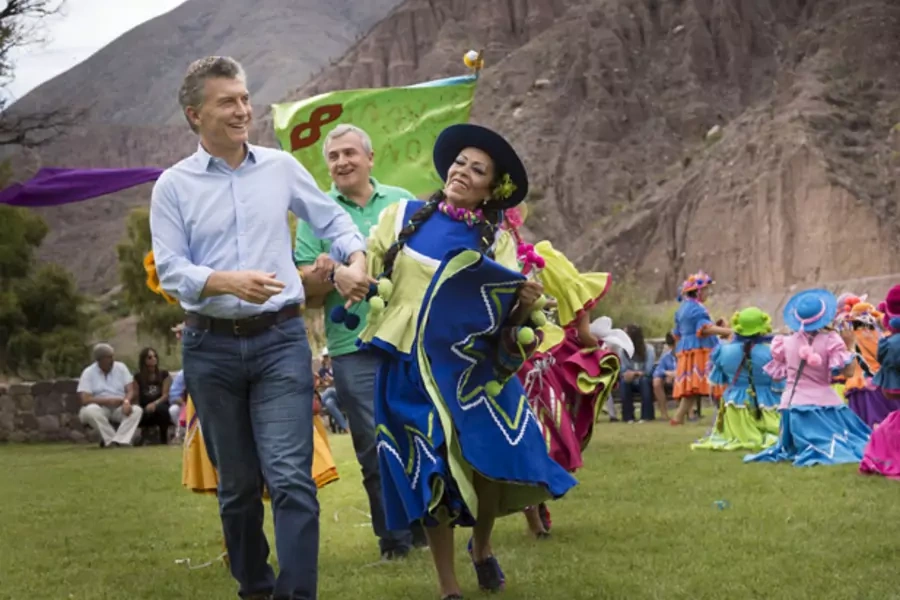Macri’s Surprising Honeymoon

More on:
By all accounts, Mauricio Macri has had a remarkable honeymoon since he was inaugurated December 10, quickly moving to revise Argentina’s economic policies, restructure its relations with the world, and tackle a variety of rule of law challenges, ranging from corruption to the drug trade. President Obama’s trip to Argentina last week was in many ways the capstone to Macri’s dynamic first hundred days in office. The visit signaled a generational shift in U.S. policy toward Latin America, seeking to repair some of the worst damage done by U.S. support of the military dictatorship that took office when Obama was a teenager, but Obama and his entourage of more than four hundred business representatives were even more convincing in their strong praise for the Macri administration’s new openness to foreign investors.
Indeed, Macri’s presidency has moved very quickly to change the climate. It has freed the foreign exchange market, cut government spending, fired public sector workers, raised repressed energy prices, reduced export taxes, and opened up trade. Early today, the government scored a major victory as the Senate approved legislation needed to end a fifteen-year debt dispute with creditors, paving the way for a return to international markets and demonstrating the government’s ability to corral the opposition toward pragmatic policies.
The government’s rhetoric has been overhauled, shifting quickly away from the dirigiste and southern-focused language of Cristina Kirchner and her economics minister Axel Kicillof, and turning instead toward the global north and potential OECD membership. Hoping to change the tone, Macri has met the United Kingdom’s David Cameron to reassure him of his desire to improve ties between the two countries, flown to Brazil to reassure Rousseff of his desire to restart trade and revamp Mercosur, and moved toward isolating the chavista regime in Venezuela, including by withdrawing support for the Bolivarian-inspired broadcast company Telesur.
For all these successes, however, the challenges Macri will face in coming months are formidable. Argentines are twice shy about economic liberalization after the deep trauma that accompanied the collapse of Domingo Cavallo’s convertibility plan and the subsequent debt default of 2002. Meanwhile, the economic situation Macri inherited is dire: high inflation, exchange rate depreciation, low foreign reserves, a primary fiscal deficit nearing 6 percent of GDP, and projections of negative real GDP growth in the coming year. Correcting the excesses of the past decade will be painful: utility and food prices are rising in response to Macri’s reforms, even as unemployment threatens, commodity prices remain low, and neighboring trading partners stagnate.
Politically, Macri is governing with a bureaucracy populated by Kirchneristas and faces a court system stacked with the previous administration’s appointees. His Cambiemos coalition lacks a majority in either house of Congress, with only 15 of 72 seats in the Senate. Macri has managed to prevail in the crucial votes on debt repayment, but moving forward on deeper reforms will require him to continue to seek out common ground with portions of the opposition, such as the Frente Renovador faction of the Peronists, whose enthusiasm for radical reform is limited and self-interested.
These conditions mean that while Macri represents a shift in Latin America, away from the “pink tide” of leftists who have governed the region since the turn of the century, his will not be a hard right turn. The positive upshot, as Andres Oppenheimer notes, is that Macri may be the leading edge of a “pragmatic cycle” in Latin America. But even accomplishing this pragmatic turn may be difficult until the economy and jobs creation perk up. In the interim, Macri may need to rely on symbolic and outward-looking moves that attract investment and build popular support, such as reforming Mercosur, driving forward EU-Mercosur negotiations (initial proposals are due on April 8), and perhaps even pushing a deal between Mercosur and the United States or signing on to the Trans-Pacific Partnership. Don’t be surprised if there are further surprises from Buenos Aires.
More on:
 Online Store
Online Store